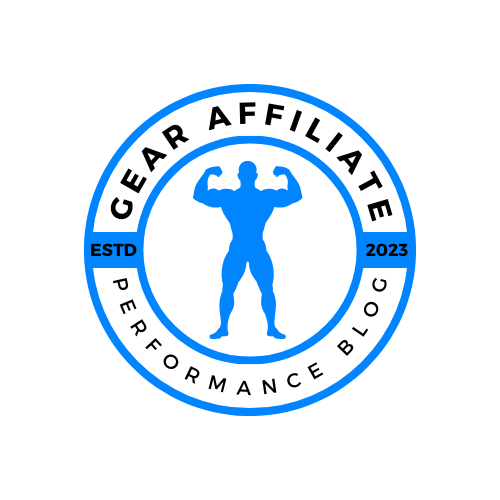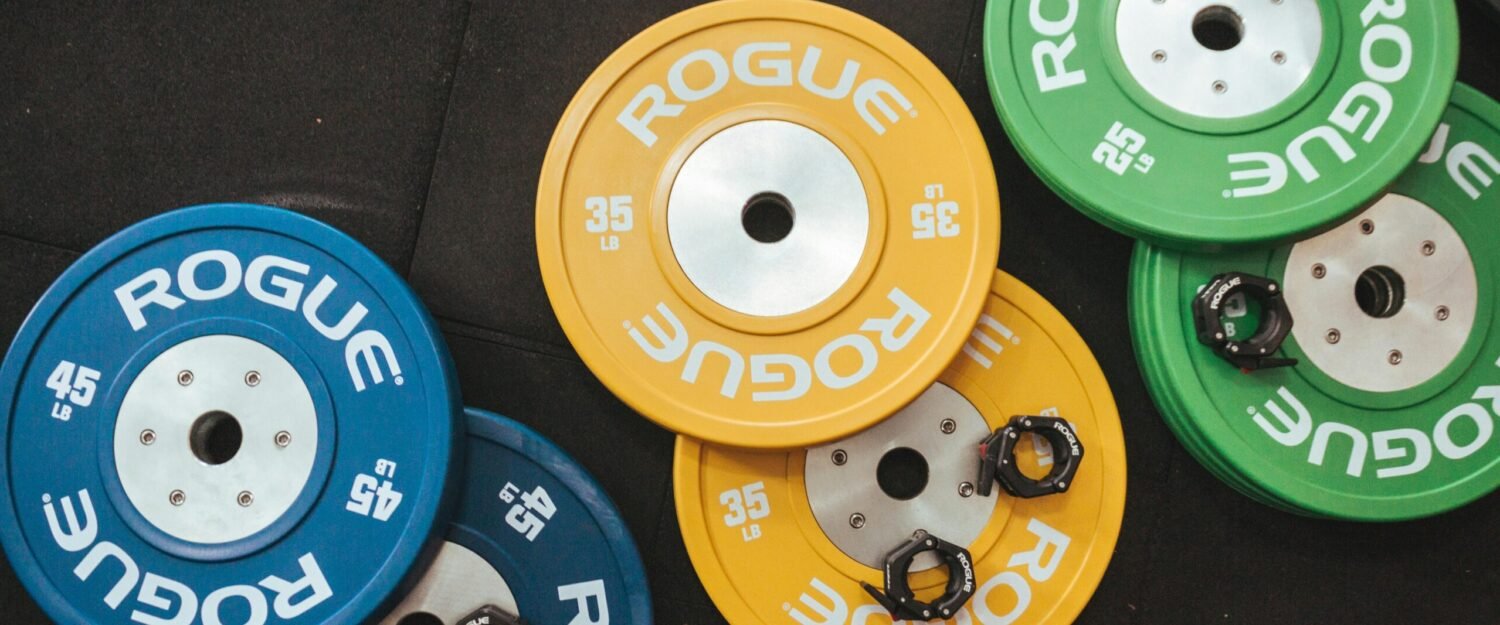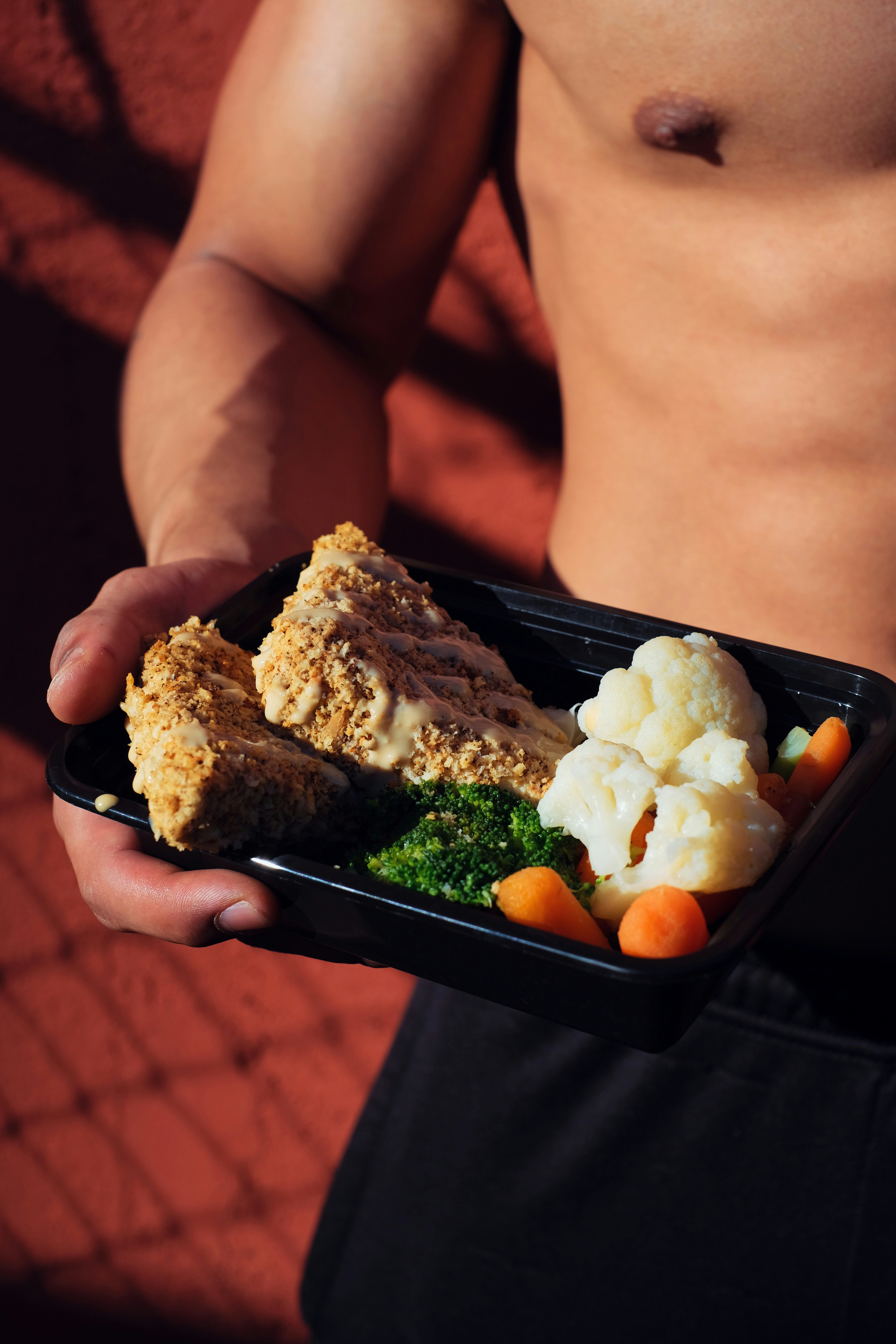
Table of Contents
Understanding What to Eat Before and After the Gym (Before)
Pre-workout nutrition plays a vital role in enhancing performance in any exercise regimen. It provides the necessary fuel for the body, ensuring that energy levels are optimized for physical activity. A well-planned pre-workout meal can significantly influence not only endurance levels but also overall workout effectiveness. Understanding the key nutrients involved is essential for anyone looking to maximize their gains at the gym.
The primary macronutrients required in a pre-workout meal include carbohydrates, proteins, and fats. Carbohydrates serve as the body’s primary energy source. Consuming complex carbohydrates, such as whole grains, fruits, and vegetables, can provide a sustained energy release, helping to prevent fatigue during a workout. When planning a meal, it is advisable to aim for a carbohydrate-rich intake approximately 30 to 60 minutes prior to exercising.
Proteins are equally important in pre-workout nutrition, as they play a crucial role in muscle preservation and repair. Including a moderate amount of protein, such as lean meats, dairy products, or plant-based proteins, can support muscle protein synthesis. Timing is also important; consuming protein before a workout can help enhance recovery and performance during the session.
Fats, although they take longer to digest, are necessary as well. Healthy fats provide a concentrated source of energy and can contribute to overall endurance. Incorporating sources like avocados, nuts, or olive oil in a pre-workout meal can be beneficial, but should be done in moderation to avoid slowing digestion.
In conclusion, understanding pre-workout nutrition is critical for anyone engaging in physical activity. By thoughtfully combining carbohydrates, proteins, and fats in your pre-workout meal, you can ensure that your body is adequately fueled and ready to perform at its best. This preparation may significantly improve the effectiveness of your workouts and help achieve your fitness goals more efficiently.
Ideal Pre-Workout Foods
Choosing the right foods before exercising is crucial in maximizing workout efficiency and results. To fuel your body adequately, consuming a balanced combination of carbohydrates and protein is essential. Carbohydrates serve as the primary source of energy, while protein aids in muscle repair and growth. Here are some of the top food options that can enhance your pre-workout nutrition.
Bananas are an excellent choice due to their high carbohydrate content and easy digestibility. Rich in potassium, they help prevent muscle cramps during your workout. Eating a banana about 30 minutes before your workout can provide a quick energy boost without weighing you down. For workouts of longer duration, such as over an hour, pairing a banana with a small serving of protein, like Greek yogurt, can sustain energy levels while also beginning the muscle recovery process.
Oatmeal is another ideal pre-workout food, particularly suited for those exercising in the morning. It is a complex carbohydrate that can offer sustained energy. Adding fruits like berries or slices of apples can enhance the flavor while providing additional vitamins. Moreover, incorporating a scoop of protein powder or a handful of nuts can create a balanced meal that promotes muscle preservation during intense sessions.
For those who prefer liquid nutrition, protein shakes can serve as a convenient option before hitting the gym. Opting for a shake that combines both protein and carbohydrates, such as plant-based powders mixed with almond milk and a banana, can effectively fuel a workout. This combination not only energizes but also supports muscle function throughout. Overall, selecting the right pre-workout foods tailored to the intensity and duration of your exercises can significantly enhance your gym performance.
Timing Your Pre-Workout Meal
Timing plays a crucial role in optimizing the benefits of your pre-workout meal, significantly influencing your performance during exercise. The ideal window for consuming a meal before engaging in physical activity typically ranges from 30 minutes to 3 hours. This timeframe allows your body to digest and absorb the nutrients effectively, providing you with the energy needed for an intense workout. However, the optimal timing can vary based on individual preferences and tolerance levels.
For those who prefer to eat closer to their workout time, a light meal or snack containing carbohydrates and protein about 30 minutes prior can be advantageous. Foods such as a banana with peanut butter, a smoothie, or a slice of toast with avocado can give you an immediate energy boost while remaining easier to digest. Conversely, if you have at least two to three hours before your session, a more substantial meal comprising complex carbohydrates, protein, and healthy fats is recommended. Examples include whole grain pasta with grilled chicken or quinoa with roasted vegetables, which provide sustained energy without causing digestive discomfort during exercise.
It is essential, however, to listen to your body and adjust your meal timing based on how you feel during workouts. Some individuals may find that they perform better when they eat less prior to exercising, while others may need a more substantial meal to avoid fatigue. Experimenting with different foods and meal timings will help identify what works best for your unique needs, allowing you to maximize your gains and enhance overall workout performance.
Understanding What to Eat Before and After the Gym (After)
Post-workout nutrition plays a crucial role in recovery and muscle growth. After an intense workout session, the body undergoes various physiological changes that necessitate the replenishment of nutrients to facilitate optimal recovery. One primary focus of post-exercise nourishment is the restoration of glycogen stores. Glycogen, which serves as a key energy source for your muscles, gets depleted during physical activity. Consuming carbohydrates shortly after exercise helps replenish these stores, ensuring that your body is prepared for future workouts.
Moreover, muscle repair is another critical aspect that post-workout nutrition addresses. Intense physical activity, particularly resistance training, leads to microscopic damage to muscle fibers. This process triggers the need for protein, which is essential for muscle repair and growth. Including protein in your post-workout meal provides the necessary amino acids required for rebuilding muscle tissue effectively. Experts often recommend a protein intake ranging from 15 to 25 grams, depending on the intensity of the workout and individual goals, though we personally believe that you cant over do it, and these numbers should be treated as minimums.
The synergistic effect of combining both protein and carbohydrates after exercise cannot be overstated. This combination not only aids in muscle recovery but also contributes to enhanced energy restoration. For instance, a well-structured meal or snack could comprise a protein source such as chicken, fish, or plant-based options alongside complex carbohydrates like sweet potatoes or whole grains. This approach maximizes the benefits of post-workout nutrition, ensuring your body effectively recovers and is ready for subsequent training sessions.

In addition to the timing and composition of food intake, hydration is another vital component that supports recovery. Water aids in digestion and nutrient transport, making it essential to replenish fluids lost during exercise. Therefore, focusing on post-workout nutrition is essential for anyone looking to enhance their overall performance and achieve their fitness objectives.
Ideal Post-Workout Foods
Post-workout nutrition is crucial for recovery and optimal performance. After exercising, your body requires a blend of proteins and carbohydrates to restore energy levels, repair muscle tissue, and enhance recovery. Here, we will explore some of the best foods and beverages that can effectively support these goals.
One highly recommended option is a protein shake. Quick and convenient, protein shakes can provide an immediate source of amino acids needed for muscle repair. Opt for a shake containing whey protein, as it is quickly absorbed by the body. Mixing the protein powder with a source of carbohydrates, such as a banana or oatmeal, can help replenish glycogen stores while providing essential nutrients.
Check out our review of the #1 Ranked protein powder
Another excellent choice is chicken paired with rice. This meal offers a nutrient-dense combination of high-quality protein from chicken, which is vital for muscle repair, and complex carbohydrates from the rice, which helps to replenish depleted energy levels. When selecting your chicken, consider grilled or baked options, as they are lower in fat compared to fried alternatives.
Cottage cheese is also a noteworthy post-workout food. Rich in casein protein, it digests slowly, providing a sustained release of amino acids to support recovery over time. Combining cottage cheese with fruits like pineapple or berries not only enhances the flavor but also adds necessary carbohydrates, vitamins, and minerals that aid in overall recovery.
Incorporating these foods into your post-workout meal plan can significantly enhance muscle recovery and energy replenishment. By strategically combining proteins and carbohydrates, you can ensure that your body receives the necessary nutrients it needs to maximize gains and support overall fitness goals. Prioritizing proper nutrition after exercise is a key component of an effective fitness regimen.
Timing Your Post-Workout Meal
Post-workout nutrition plays a pivotal role in optimizing recovery and maximizing gains from exercise. It is often recommended that individuals consume a meal or snack within a 30-minute window following their workout. This timeframe is frequently highlighted due to the body’s heightened ability to absorb nutrients, particularly carbohydrates and proteins, immediately after intense physical activity. During this period, muscle cells exhibit increased sensitivity to insulin, allowing for more effective nutrient uptake, which is crucial for muscle repair and growth.
The ideal composition of a post-workout meal typically includes a combination of carbohydrates and proteins. Carbohydrates are essential for replenishing glycogen stores that may have been depleted during exercise, while proteins provide the necessary amino acids to aid in muscle recovery. For those engaging in high-intensity workouts or prolonged sessions, this nutrient ratio becomes even more critical. Studies suggest that a 3:1 ratio of carbohydrates to protein can significantly enhance recovery and muscle protein synthesis, ultimately contributing to improved performance in subsequent workouts.
However, it is important to recognize that the specific timing and nutrient composition of post-workout meals may vary based on individual circumstances, such as workout intensity, duration, and personal fitness goals. For example, an individual participating in a brief, moderate workout may not require as immediate or substantial a intake as someone who has completed a lengthy, vigorous session. Those with weight loss goals might also adjust their post-workout strategies to align with their caloric intake and nutritional preferences. Consequently, while the 30-minute guideline can serve as a standard, tailoring post-workout nutrition to one’s own workout routine and objectives is a more effective approach for long-term success.
Hydration: A Key Component
Hydration plays a crucial role in any workout regimen, influencing not just performance but also recovery and overall health. Adequate fluid intake before, during, and after exercise is essential for maximizing gains and ensuring that the body functions optimally. Water serves multiple purposes, such as regulating temperature, lubricating joints, and transporting nutrients throughout the body, all of which are vital during physical activities.

Before hitting the gym, it is recommended to consume at least 16-20 ounces of water about two hours prior to your session. This gives your body sufficient time to absorb the fluids and ensures that you are well-hydrated as you begin your workout. During your workout, aim for 7-10 ounces of water every 10-20 minutes, especially if you are engaging in high-intensity activities that lead to significant fluid loss. This ongoing hydration helps maintain your endurance and cognitive function, allowing you to perform better.
Post-workout hydration is equally important, as it aids in the recovery process. Aim to replenish lost fluids by drinking 16-24 ounces of water for every pound of body weight lost during the exercise. This can also be aided with electrolyte drinks if the workout was particularly lengthy or sweat-intensive. Signs of dehydration include dry mouth, fatigue, dizziness, and decreased performance, all of which can impede workout effectiveness and hinder progress.
The connection between hydration and nutrition cannot be overstated. Proper hydration not only supports muscle function but also enhances nutrient absorption, which is essential when trying to maximize muscle gain and recovery. Therefore, incorporating consistent and adequate fluid intake into your pre- and post-workout strategies is paramount for optimal performance and overall health. Prioritize your hydration, and you will likely notice the positive impacts it has on your workout gains.
Avoiding Common Nutrition Mistakes
When it comes to pre- and post-workout nutrition, many individuals inadvertently make choices that can hinder their performance and recovery. One of the most prevalent mistakes is consuming heavy, fatty foods shortly before exercising. High-fat meals can lead to discomfort, sluggishness, and reduced energy levels during workouts, as these foods take longer to digest. Instead, it is advisable to opt for light, easily digestible snacks that are rich in carbohydrates and proteins to fuel the body effectively.
Another common pitfall is skipping meals, particularly before a workout. This often stems from the misconception that exercising on an empty stomach enhances fat-burning. However, this approach can lead to diminished performance and an increased likelihood of injury. Adequate fuel is essential to maximize workout efficiency. Therefore, individuals should aim to consume a balanced meal or snack that includes carbohydrates and protein about 30 to 60 minutes before exercise.
Post-workout nutrition is equally important, yet many people fail to replenish their bodies adequately after exercise. After a workout, the body is in a state of recovery, requiring nutrients to repair muscles and restore energy. Consuming a combination of protein and carbohydrates immediately post-exercise can significantly boost recovery and muscle synthesis. Foods such as Greek yogurt with fruit or a protein shake with a banana serve this purpose well.
Planning meals around workouts requires attention to nutrient timing. Individuals should consider not only what they consume but also when they eat. Spacing meals and snacks appropriately can help maintain energy levels and improve overall workout performance. Establishing a routine that includes proper hydration, balanced meals, and timely snacks will lead to better results and enhanced fitness progress.
Tips for Meal Planning
Effective meal planning plays a crucial role in optimizing your workout nutrition. By preparing well-balanced meals that cater to both pre- and post-workout needs, you can maximize gains and support recovery. A structured approach allows you to ensure that nutritious options are readily available, promoting discipline in your eating habits.
One of the primary strategies for successful meal planning is to create a weekly menu. Take time to outline your meals for each day, focusing on incorporating complex carbohydrates and lean proteins. For instance, consider preparing whole grain wraps with chicken and vegetables for lunch, and a dinner featuring quinoa with grilled salmon and steamed broccoli. This advance planning not only saves time but also helps to avoid last-minute unhealthy food choices.
Batch cooking is another effective technique that can streamline your meal preparation. Dedicate a day, perhaps the weekend, to cook larger portions of meals that can be stored and easily reheated throughout the week. This can include soups, stews, or casseroles that freeze well. Portioning them into individual containers allows for convenient access and ensures you have nutritious options available without the need for daily cooking.
When it comes to snack options, focus on keeping them healthy and easy to grab. Items like pre-cut fruits, nuts, and yogurt can be prepared in advance and stored in portable containers. Incorporating these foods not only supports pre- and post-workout nutrition but also helps to maintain energy levels throughout the day.
Utilizing proper storage is essential to prevent spoilage and maintain freshness. Invest in high-quality containers that can keep your meals organized and preserved. Additionally, keeping a consistent grocery list aligned with your meal plan can further enhance your approach, ensuring that you have all the necessary ingredients at your fingertips.
By implementing these meal planning tips, you’ll develop a system that promotes consistency and allows you to focus on your fitness goals, ensuring that both pre- and post-workout nutrition supports your overall health and performance effectively.
If you found this post to be helpful, then you may be interested in the rest of our blog page here.
At Gear Affiliate, we always want to give our readers more resources to research. Below are a few sources that we have found to be helpful relating to this topic.
Video Links: Video 1, Video 2.
Discover more from GearAffiliate
Subscribe to get the latest posts sent to your email.


